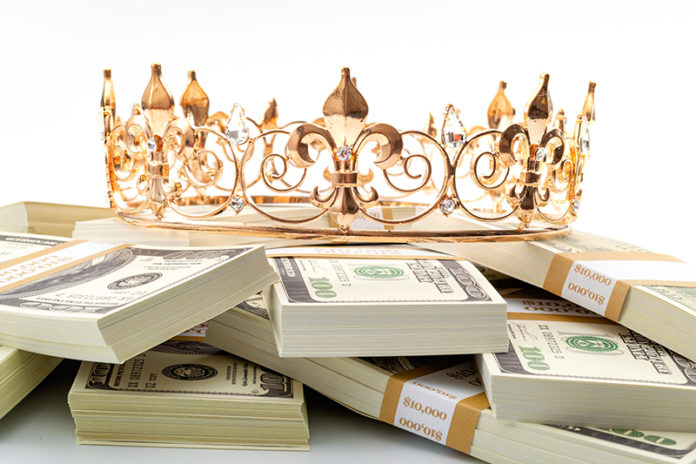America’s true “Greatest Generation” won our nation’s independence only after a costly and bloody war against Great Britain. It took eight years and many thousands of lives, but when the Treaty of Paris was signed in 1783, the United States was a nation no longer subject to the arbitrary and absolute royal decrees issued by King George III. Now, 238 years later, we are reverting to a nation governed by the modern version of royal decrees – executive orders.
The painstakingly crafted Constitution that formalized our representative democracy in 1788 has continued a tripartite government of checks and balances essential to prevent any one branch from exercising unbridled power. Despite this system having withstood all manner of challenges, there now is a very real danger that the unprecedented use of executive orders by President Joe Biden to bypass the legislative branch will seriously, if not irreparably, damage our constitutional framework.
George Washington, our first and in many respects our best president, truly understood the system he helped create, and was genuinely loath to overstep those constitutional checks and balances. For example, during his two terms in office, Washington issued only eight executive orders. This is an astoundingly small number, considering that his near God-like popularity and the lack of any limiting precedents gave him the practical power to have used the executive order extensively to rule as he might have wished.
To one degree or another, most presidents since then have followed this tradition, using the executive order and other unilateral presidential missives for the limited purposes for which they have been recognized; that is, as a tool to administer the executive branch of government, and not to implement policies or to circumvent the will of the Congress.
In fact, during America’s first 48 years, presidents issued only 30 executive orders – a number America’s current president, Joe Biden, is on pace to exceed during his first month in office. Problematically, many of Biden’s decrees, such as that stopping the multi-billion-dollar Keystone XL Pipeline, have nothing to do with the administrative running of federal agencies, and everything to do with far-reaching public policy preferences.
It would be unfair to blame only Biden for the state of abusive presidential power in which we find ourselves. The problem is multi-faceted and has been building for many years. It is fair, however, to sound the constitutional alarm right now, and to shine the spotlight on him as our country, or more precisely, our Constitution faces the perfect storm of a president more than eager to expand the power of the office he only recently inherited, aided by majorities of his political party in both houses of Congress.
Biden is enabled further in this drive to place his “stamp” on federal policies, by a public largely ignorant of and uncaring about the history of or reasoning behind the limitations on executive power placed there by our Founders.
The significant growth of presidential power in recent years has met little pushback from the other “co-equal” branches of government, other than loud cries of political “foul” issued by members of the political party not able to sign executive decrees. Even in the very rare instances in which the Congress actually pushed back against a president’s executive actions, as when it passed the War Powers Act in 1973, its knees wobbled and it wrote into the law enough leeway for presidents easily to sidestep its requirements.
Federal courts, including the Supreme Court, also have shown little appetite to rein in executive branch overreaches. In fact, of the more than 14,000 executive orders issued by all presidents from Washington to Biden, only two were found to have overstepped constitutional boundaries (one by President Truman, the other by President Clinton).
Recent presidents eager to exercise expanded power have been aided greatly in this mission by the rise of hyper partisanship and congressional gridlock. This has created numerous opportunities for partisan lawmakers to look to the White House to advance policy agendas they have been unable or unwilling to accomplish themselves.
Ultimately, however, such changes so cavalierly made by the “stroke of the Biden pen” are a great disservice (and danger) to the “strokes” of the pens our Founders’ used in crafting the system of limited and defined powers accorded the federal government 238 years ago.






























